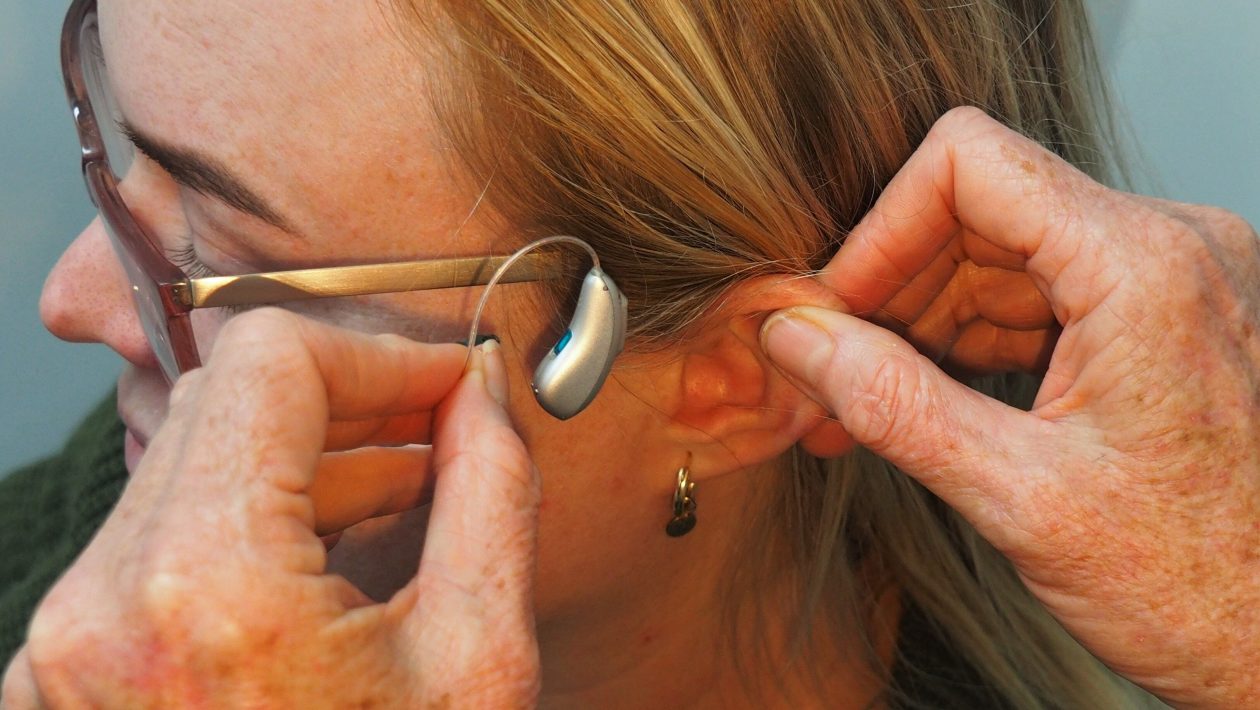Hearing loss is a common condition that affects millions of people worldwide, and it can significantly impact one’s quality of life. Recently, concerns have arisen regarding a potential side effect of a medication called Tepezza, specifically its association with it.
Tepezza is a medication primarily used for the treatment of thyroid eye disease. However, reports have surfaced suggesting a link between Tepezza and hearing problems. There are certain signs and symptoms of hearing loss, how Tepezza may contribute to this condition, and the factors that could increase the likelihood of experiencing hearing problems.
In this article, we will dig deeper into everything you need to know about the link between Tepezza and hearing loss.
Understanding Tepezza-Induced Hearing Loss
According to Drug Watch, the drug Tepezza (teprotumumab-trbw) is used to treat Graves’ orbitopathy, generally known as thyroid eye disease. The FDA-approved drug tackles the underlying cause of TED, easing symptoms and making bulging eyes look less prominent.
But with its growing use, concerns regarding Tepezza and its potential association with hearing loss have risen too. While more research is needed to establish a clear cause-and-effect relationship between Tepezza and hearing problems, several cases have been reported, leading to increased awareness and investigation.
According to TruLaw, hearing difficulties due to Tepezza can emerge as increased sound sensitivity, tinnitus, and loss of hearing. It may also cause a disorder known as eustachian tube dysfunction, which prevents the tubes from the middle ears to the throat from opening.
Due to the emergence of reports linking Tepezza with these issues and the conditions mentioned above, some individuals affected by these issues have filed a Tepezza lawsuit. The lawsuit aims to seek compensation for the damages caused by the alleged side effect and highlight the concerns of complications caused surrounding it.
It is crucial to note that not everyone who takes Tepezza will experience loss of hearing. Factors such as individual susceptibility, dosage, duration of treatment, and underlying health conditions may play a role in determining the likelihood and severity of this side effect.
Risk Factors and Precautions
Certain factors may increase the likelihood of experiencing hearing loss. It is important to be aware of these risk factors and take necessary precautions if you are using or considering Tepezza treatment.
Age may play a role in the development of hearing problems. Older adults, in general, are more prone to experiencing hearing difficulties. Therefore, if you are an older adult taking Tepezza, it is important to be vigilant about any changes in your hearing and report them to your healthcare provider promptly.
Another important consideration is the dosage of Tepezza treatment. According to Medical News Today, the dosage of Tepezza prescribed by your doctor will be based on factors such as your body weight and whether it’s your first dose. The recommended dosages may vary, so it’s important to follow the treatment plan prescribed by your doctor for the most suitable dosage to meet your specific needs.
In some cases, individuals who received higher doses of Tepezza or underwent prolonged treatment durations may be more susceptible to hearing-related side effects. Thus, it is essential for your healthcare provider to carefully assess the appropriate dosage based on your specific condition and medical history.
Monitoring and Early Detection
Regularly monitoring your hearing is important to identify any changes or symptoms that may indicate a potential problem. By detecting hearing problems early, appropriate actions can be taken to minimize their impact.
If you are taking Tepezza, your healthcare provider will likely include hearing assessments as part of your regular check-ups. By monitoring your hearing at regular intervals, any changes can be detected promptly.
You must actively communicate with your healthcare provider if you notice any changes in your hearing. According to the National Institute of Deafness and Other Communication Disorders, one common issue to be cautious about is tinnitus, which should be reported promptly. Tinnitus is the sense of sound with no external source, making it impossible for others to hear.
In other words, it is a ringing, buzzing, or roaring noise in the ears. According to recent data, 10 to 25% of individuals suffer from tinnitus. Therefore, by reporting these changes, your healthcare provider can assess the situation and take appropriate action.
Sometimes, your healthcare provider may recommend consulting with an audiologist specializing in evaluating and treating hearing problems. The audiologist can perform more detailed tests to assess the extent and nature of your hearing dysfunction. This information can help guide further treatment decisions and interventions.
Management and Treatment
If you are diagnosed with Tepezza-induced hearing loss, management and treatment options are available to help address this condition. The specific approach will depend on the severity of your hearing loss and its impact on your daily life.
In some cases, hearing aids may be recommended. These are small devices worn in or behind the ear that amplify sounds, making them easier to hear. Hearing aids can be customized to your specific hearing needs and greatly improve your communication and conversation ability.
For individuals with more severe hearing issues that cannot be adequately addressed with hearing aids, cochlear implants may be considered. A cochlear implant is a small electronic device surgically placed in the ear. It bypasses the damaged parts of the ear and directly stimulates the auditory nerve, allowing you to perceive sound.
Patient Education and Support
Patient education and support play a vital role in coping with the condition and improving overall well-being. Understanding your hearing loss and having access to resources can empower you to actively manage and adapt to the changes.
First and foremost, educating yourself about the issue is essential. Learn about the potential signs and symptoms, risk factors, and available treatment options. Discuss your concerns and questions with your healthcare provider to ensure a clear understanding of your condition and available support.
Joining support groups or seeking out online communities can be immensely beneficial. Connecting with others who have experienced or are going through similar situations can provide emotional support and a platform to share experiences, tips, and coping strategies.
Hearing dysfunction support groups can also provide valuable information about local resources, communication techniques, and assistive technologies.
Tepezza Can Cause Hearing Loss as a Side Effect
While hearing dysfunction and loss is uncommon, it is important to be aware of the signs, risk factors, and precautions associated with this potential side effect of Tepezza use. Regular monitoring, early detection, and open communication with your healthcare provider are key to managing and addressing Tepezza-induced hearing loss effectively.
To adapt to the changes caused by Tepezza, it is important to stay informed, seek support, and work closely with your healthcare team. Patient education, support networks, and guidance are also crucial in finding resources to cope with this condition and lead a fulfilling life.





